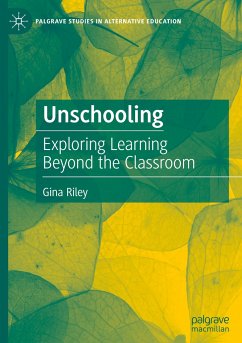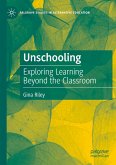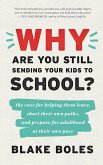This book explores the history of the unschooling movement and the forces shaping the trajectory of the movement in current times. As an increasing number of families choose to unschool, it becomes important to further study this philosophical and educational movement. It is also essential to ascribe theory to the movement, to gain greater understanding of its workings as well as to increase the legitimacy of unschooling itself. In this book, Riley provides a useful overview of the unschooling movement, grounding her study in the choices and challenges facing families as they consider different paths towards educating their children outside of traditional school systems.
Bitte wählen Sie Ihr Anliegen aus.
Rechnungen
Retourenschein anfordern
Bestellstatus
Storno









